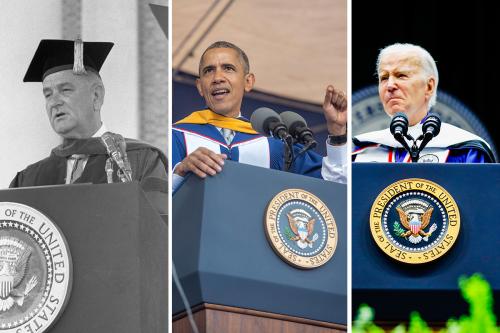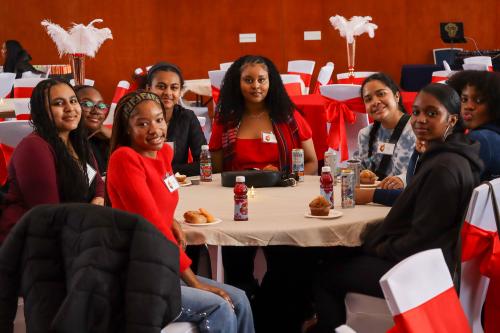WASHINGTON – Howard University Assistant Professor of Chemical Engineering Tao Wei recently received the prestigious National Science Foundation (NSF) Faculty Early Career Development (CAREER) Award for his research on multiscale simulations of metal oxide nanoparticle-protein electron transfer. NSF presents the CAREER awards research grants to stellar faculty who have the potential to serve as academic role models in research and education, along with leading advances in the mission of their department or organization.
“The attainment of the NSF Early Career Development Award would stand as a major milestone on the path of any career,” says Vice President for Research, Bruce Jones, Ph.D. “The fact that one of our own, Dr. Tao Wei, achieved this milestone is an incredible testament to his hard work as a researcher and professional mentor to the entire research community at Howard University.”
The goal of Wei’s research project, entitled Multiscale Simulations of Iron Oxide Nanoparticle-Protein Electron Transfer, is to understand interactions between nanoparticles and dissimilatory metal-reducing bacteria (DMBR) for the advancement of nanobiotechnologies for environmental applications. The coupling of metal oxide nanoparticles with DMBR can generate continuous oxidation-reduction chemical processes that effectively remove toxic components from contaminated soil and water. This coupling is also used to produce continuous electrical energy in biofuel cells. The challenge is to increase the efficiency of associated nanobiotechnologies.
“The fundamental studies of this project will help develop more efficient technologies for environmental applications,” Wei explains. “The knowledge obtained from this project is also highly desirable and applicable to technology development in bioenergy, biocompatible materials and biosensors.”
Wei’s group will use multiscale computations complemented with experiments to study nano-bio interfacial electron transfer from quantum to molecular levels. This project is being supported by the NSF via the Nanoscale Interactions Program within the Division of Chemical, Bioengineering, Environmental and Transport Systems (CBET).
Wei says his research activities and findings will be used to develop new course materials in the chemical engineering programs, in addition to creating research opportunities for undergraduate and graduate students within the College of Engineering and Architecture. Wei hopes the new research opportunities for students will assist in recruiting and retaining students in the chemical engineering program, with a specific focus on diversifying the field of biomaterials engineering.
Interim Chair of the Department of Chemical Engineering Patrick Ymele-Leki, Ph.D., says, “Our department is currently celebrating its 50th year anniversary and a tradition of dedication, education, mentoring, training, research, excellence, and leadership. This is in no small part due to the effort and success of our faculty in tackling innovative and transformation research projects – with national and international recognition. Dr. Wei is a valuable member of a collegial group of high-quality researchers and educators who continue to set high standards in promoting Howard University’s mission and meeting the needs of our global community.”
Since joining the University in Fall 2017, Wei has been awarded more than $1.3 million in research grants from NSF and NASA/JPL. He has also published articles in peer-reviewed journals such as Langmuir, Scientific Reports, Journal of Chemical Theory and Computation and Journal of Molecular Liquids, as well as a book chapter about theoretical simulation approaches to polymer research. His research projects on biointerfaces, biosensing and polymer membrane were reported in a feature story in an annual highlight book published by Extreme Science and Engineering Discovery Environment (XSEDE) in 2018.
For more information on the National Science Foundation’s Faculty Early Career Development Program, visit https://www.nsf.gov/funding/pgm_summ.jsp?pims_id=503214.
###
Photograph above: Tao Wei, Ph.D., stands before simulation projects of biointerfaces at the Howard University College of Engineering and Architecture
ABOUT HOWARD UNIVERSITY
Founded in 1867, Howard University is a private, research university that is comprised of 13 schools and colleges. Students pursue studies in more than 120 areas leading to undergraduate, graduate and professional degrees. The University operates with a commitment to Excellence in Truth and Service and has produced one Schwarzman Scholar, three Marshall Scholars, four Rhodes Scholars, 11 Truman Scholars, 25 Pickering Fellows and more than 70 Fulbright Scholars. Howard also produces more on-campus African-American Ph.D. recipients than any other university in the United States. For more information on Howard University, visit www.howard.edu.
Media contact: Ramzey Smith, Office of University Communications, ramzey.smith@howard.edu




